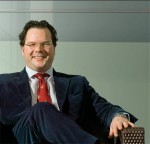The EU Gaming Law Group is born!
On the 27th of January, during the International Casino Exhibition (ICE), the Founders of the portal www.gaminglaw.eu Quirino Mancini, Thibault Verbiest, Dr. Wulf Hambach, Santiago Asensi and Justin Franssen presented their new European Economic Interest Groupment – the EU Gaming Law Group – during a business breakfast at the Brown’s Hotel in London.
The mission of the new groupment was summarized in a powerpoint presentation (see attachment to this article) and can be defined as follows:
The legal battles fought in recent years before the European Court of Justice by a few brave and determined operators against national monopolies to claim the right to freely offer their gaming services across the EU regrettably did not result in the abolition of said monopolies, nor did they otherwise trigger an EU-wide harmonisation of gaming legislation.
The founders and partners of gaminglaw.eu strongly believe that the next challenge for the gaming industry in Europe is to tackle and drive the legal and regulatory changes to be introduced by the Commission – and eventually the national governments – to ensure, in a realistic and pragmatic way, that any international gaming operator may actually conduct business across Europe without too many administrative barriers and hurdles, though still under fair competition-friendly and reasonable local licensing regimes.
This goal can, in our view, be achieved only through coordinated, consistent and continuous pressure on all authorities concerned (in Brussels and elsewhere), made up of a strategic blend of efforts in terms of information, dissemination, education, consultation, political lobbying and, if required, fresh legal action.
With all this in mind, and to be able to cope with this major challenge, the founders and partners of gaminglaw.eu have now resolved to organise themselves in the form of a pan-European group of firms, fully-integrated and highly specialised in the provision of legal and non-legal services to the international gaming industry but also well equipped to interact with those central or regional authorities that may wish to bridge the communication and relations gap that too often in the past has tarnished their dealings with the operators.

